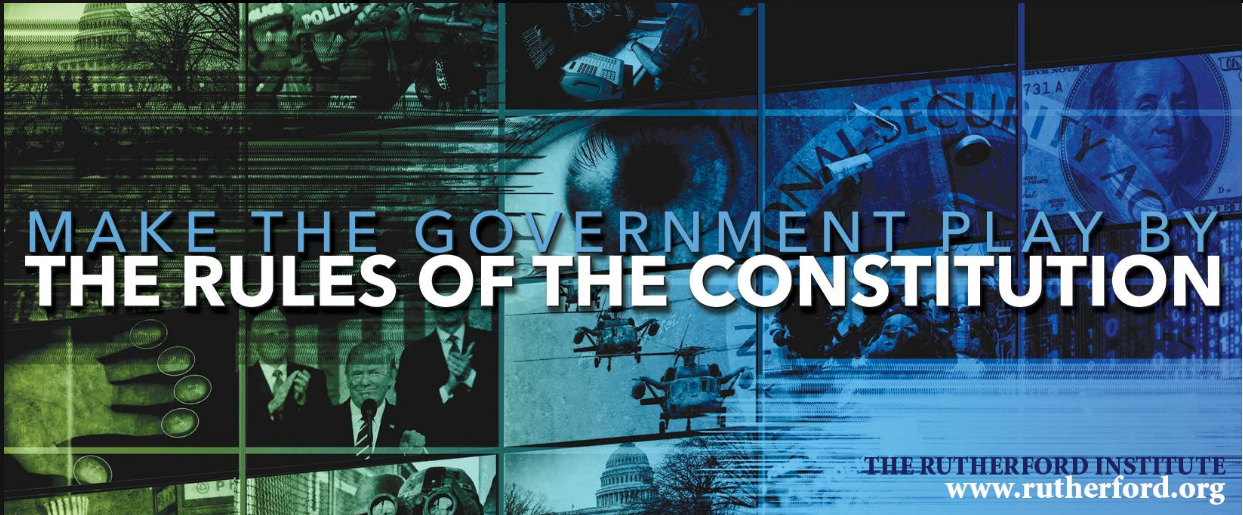
WASHINGTON, D.C. — The Rutherford Institute is calling on the U.S. Supreme Court to protect free speech forums on social media from attempts by big tech companies to block, ban, remove, deplatform, demonetize, de-boost, restrict, deny equal access or visibility to, or otherwise discriminate against viewpoints of which they might disapprove.
In an amicus brief filed in NetChoice v. Paxton and Moody v. NetChoice, Rutherford Institute attorneys argue that laws should be allowed to treat social media platforms as free speech forums and secure them from viewpoint-based censorship by big tech companies to promote freedom of speech for all Americans. The joint cases arose in response to laws in Texas and Florida that forbid censorship by Big Tech companies such as Facebook, Google, TikTok and YouTube.
“Technofascism is the modern-day equivalent of book burning, which does away with controversial ideas and the people who espouse them,” said constitutional attorney John W. Whitehead, president of The Rutherford Institute and author of Battlefield America: The War on the American People. “Once you allow government agencies and corporations to determine what viewpoints are ‘legitimate,’ you’re already moving fast down a slippery slope that ends with the censorship of all viewpoints altogether other than that of the government and its corporate allies.”
In response to increasing complaints about viewpoint-based censorship by social media companies, Texas and Florida each passed laws to prohibit such content moderation. The Texas law forbids censorship by social media platforms with more than 50 million active monthly users, such as Facebook and YouTube. The law defines “censor” as meaning “to block, ban, remove, deplatform, demonetize, de-boost, restrict, deny equal access or visibility to, or otherwise discriminate against expression.” But the law does not prohibit censorship of unlawful expression, such as involving the sexual exploitation of children and threats of violence. Under the law, platforms must disclose how they moderate and promote content, publish an “acceptable use policy,” and maintain a complaint and appeal system for users whose posts are removed. The Florida law likewise applies to larger social media platforms, but it only prohibits censorship relating to candidates for office and larger “journalistic enterprises.” Both laws treat the platforms as common carriers similar to public utilities.
NetChoice and the Computer & Communications Industry Association—trade associations which represent social media companies like Facebook, Google (which owns YouTube), and TikTok—filed separate lawsuits challenging the two state laws. The Eleventh Circuit Court of Appeals found Florida’s law to be unconstitutional, reasoning that the content-moderation decisions of social media companies is a protected exercise of editorial discretion. However, the Fifth Circuit found the Texas law to be constitutional, rejecting “the idea that corporations have a freewheeling First Amendment right to censor what people say.” The Fifth Circuit also warned that providing corporations with an “unenumerated right to muzzle speech” could pave the way for “email providers, mobile phone companies, and banks [to] cancel the accounts of anyone who…support[s]…a disfavored political party.” In its amicus brief, The Rutherford Institute called on the U.S. Supreme Court to protect Americans’ freedom of speech in the modern public forum of social media.
Attorney Jared Harpt assisted with advancing the arguments in the amicus brief in NetChoice v. Paxton and Moody v. NetChoice.
The Rutherford Institute, a nonprofit civil liberties organization, provides legal assistance at no charge to individuals whose constitutional rights have been threatened or violated and educates the public on a wide spectrum of issues affecting their freedoms.
Source: http://tinyurl.com/yc3uxt5t




